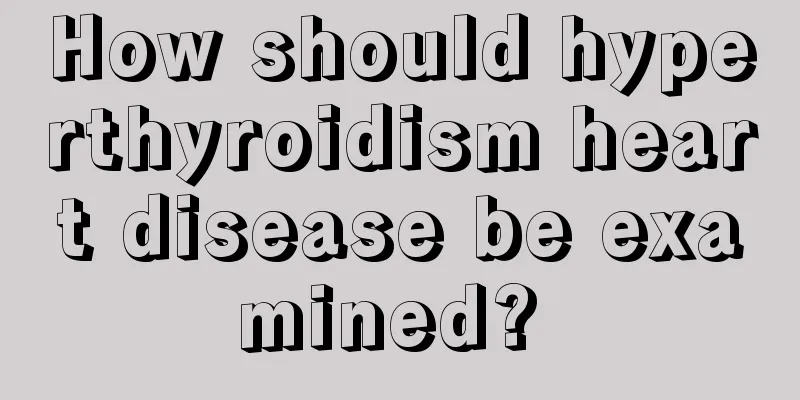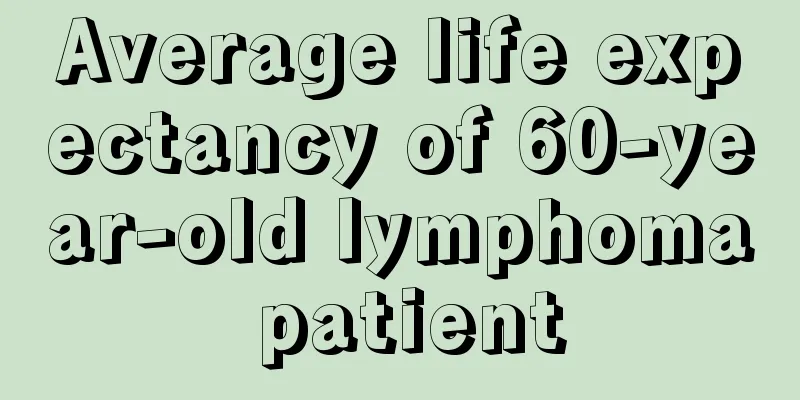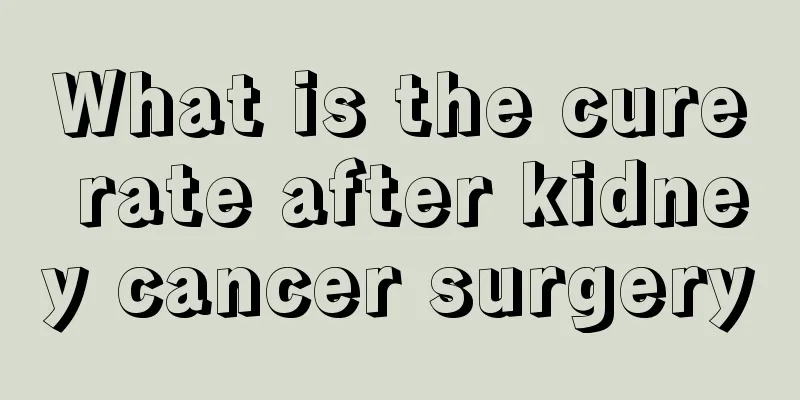How should hyperthyroidism heart disease be examined?

|
Hyperthyroid heart disease refers to a condition in which the hormones secreted by the thyroid gland, which affect the heart and cause a heart attack, when the thyroid gland is overactive. It should be noted that the mortality rate of hyperthyroid heart disease is relatively high. The main causes of hyperthyroid heart disease are arrhythmia, rapid heartbeat, ventricular enlargement, heart failure and angina pectoris. How should hyperthyroid heart disease be examined and how can its attack be avoided? Let’s learn together. 1. Inspection method 1. Thyroid 131 iodine absorption rate test: 131 iodine absorption peak moves forward, rises or the curve rises rapidly. 2. Determination of thyroid hormones: serum T3, T4, FT3, FT4, etc. increased, and TSH decreased. 3.X-ray examination: The pulmonary artery arch is prominent and the cardiac shadow is enlarged. 4. Electrocardiogram (1) Left ventricular hypertrophy. (2) ST-T changes: pathological decrease in ST-T and T wave changes (depression, bidirectionality, inversion). (3) Hyperthyroidism P wave: 26.2% of patients with hyperthyroidism have P wave changes in their electrocardiogram. (4) Changes in PQ interval: The PQ interval is prolonged in 1.7% to 4.6% of patients with hyperthyroidism. (5) High T wave: High T wave occurs in only 14% of patients with severe hyperthyroidism. (6) QT interval: QT interval prolongation is more common than shortening. 2. Treatment Methods 1. Drug treatment Commonly used drugs include methimazole (thimazole), propylthiouracil, and methylthiouracil, and one of them is generally selected. Such as methimazole (thimazole) 30-45 mg/d, methylthiouracil or propylthiouracil 300-600 mg/d. During treatment, the drug dosage should be adjusted appropriately according to the symptoms of hyperthyroidism. Once the symptoms of hyperthyroidism are controlled, the effective dose can be changed to an appropriate maintenance dose. 2. Radioactive iodine therapy The general principle is that for hyperthyroid heart disease, especially hyperthyroidism accompanied by organic heart disease, in order to prevent recurrence, radioactive iodine treatment is recommended; for elderly patients, when antithyroid drug treatment is ineffective or the condition is severe, iodine treatment can be used; for patients who have undergone thyroidectomy once or several times and have recurred hyperthyroidism, iodine treatment is more appropriate. However, it should not be used by younger patients, especially those under 20 years old, pregnant women or those who may have thyroid cancer. The specific method is: first use antithyroid drugs for treatment, wait until the symptoms of hyperthyroidism are alleviated and the heart function is basically restored, stop the drug for 4 to 7 days, give radioactive iodine treatment, and add small doses of antithyroid drugs such as methimazole (thimazole) 15 to 30 mg/d as appropriate after 2 weeks, and maintain for 6 to 12 months. It should be pointed out that after one oral administration of iodine, it should not be repeated within 6 to 8 weeks. |
<<: How to clean blackened silver products?
>>: How long does it take for Silge to treat hyperthyroidism?
Recommend
It is necessary for patients with prostate cancer to undergo ultrasound examination
PSA, anal examination and transrectal prostate ul...
You should have enough knowledge about the symptoms of gallbladder cancer
The symptoms of gallbladder cancer have a great i...
Is pituitary tumor hereditary? What harm will pituitary tumor cause?
The occurrence of pituitary tumors is related to ...
Why is refractory lymphoma difficult to treat
Lymphoma is a systemic disease that is widely dis...
Things to note before gastric cancer examination
Precautions to take before a gastric cancer exami...
Why is tooth extraction necessary for orthodontic treatment?
Orthodontic treatment requires tooth extraction b...
What are the chemotherapy options for breast cancer
If the patient is an early-stage breast cancer pa...
Relaxation therapy should be done like this
People nowadays live a fast-paced life and are un...
Steps of pushing the leg meridian technique
The technique of pushing the leg meridians requir...
How can I make my lips thinner?
With the development of society, people's aes...
The difference between artificial leather and genuine leather
When it comes to leather products, people always ...
Breast cancer patients should not blindly take supplements
When people visit patients, they always bring som...
How can short people grow taller? Correct your mindset!
Height is a flaw for many people, especially for ...
What are the harms of cooking fumes to the body
It is normal to have smoke when cooking, but too ...
How to remove tea stains from clothes
Tea stains on clothes are a very troublesome prob...









